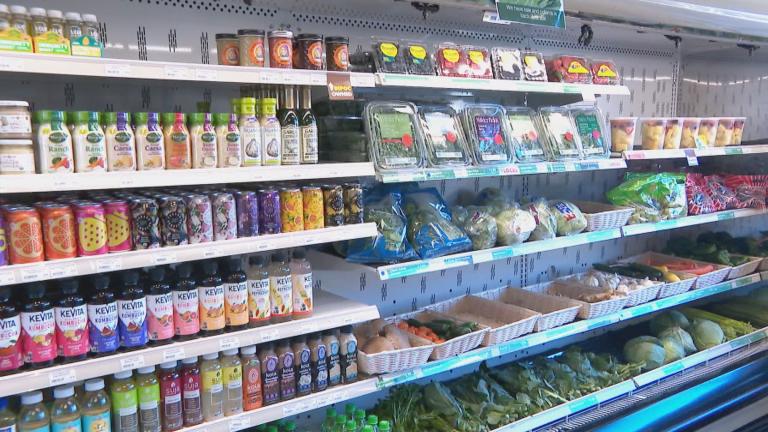In recent months, a few high-profile retail thefts, sometimes called “smash-and-grab” thefts have grabbed headlines. This is when a thief or a group of thieves steal merchandise from a retail store and resell the products.
In response, Illinois lawmakers have proposed a new bill that defines organized retail crime for the first time in statute. But some community groups are raising concerns saying the legislation will further harm communities that have been oppressed by the criminal justice system for decades.
Rob Karr, president and CEO of the Illinois Retail Merchants Association, which helped shape the proposal, said the new designation is necessary to combat this specific phenomenon.
“It defines it, it treats it for what it is, which is organized. It proposes to go after the people who are actually organizing it,” Karr said. “It also creates some intelligence gathering and sharing opportunities for law enforcement, creates some dedicated resources, attacks smash-and-grabs. So it treats both what we’re seeing as well and it attempts to restore confidence in our neighborhoods and our communities.”
Earlier this week, a coalition of community organizations wrote an open letter to the Illinois legislature expressing opposition to the bill. Jessie Fuentes, director of policy and youth advocacy for one of the members of that coalition, Puerto Rican Cultural Center, said that while retail theft is certainly a concern, the bill and new designation does nothing to address the reasons this theft happens.
“We don’t believe that redefining broad categories of retail theft as organized retail theft will reduce the number of crimes that we see today. It’s not going to address the root causes of the issue,” Fuentes said. “We think that this piece of legislation will ensure that the legal consequences can be that much more punitive. We exist within a state that currently has a very low threshold. In comparison to some of our neighboring states, there are states that have $1000 or $2500 thresholds for retail theft to be a felony. This seems to be a back door or type of deal to ensure that the legal penalties are more punitive.”
Karr pointed out that another component of the proposal seeks to address the resale of stolen goods.
“They’re going into high retail stores and they’re stealing mass quantities and those mass quantities, for example, are winding up being sold in other places, they’re being fenced,” Karr said. “And one of the things this bill also does is addresses online marketplaces to require more responsibility on their part because the fencing, the pawnshops, if you will, of the 21st century is the internet.”
He also notes that this type of theft is not exclusive to high-end retailers and makes it difficult for communities to thrive.
“It encompasses all of our, our neighborhoods and it leads to a bad environment. We’re never going to get people returning to the brick and mortar. We’re never going to get to the vitality, particularly the city of Chicago, when we have these kind of safety concerns around our city because it’s feeding other crime,” Karr said.
But Fuentes said that the particulars of the thefts do not warrant a legislative solution when laws to prosecute theft already exist.
“Increased penalties does not mean that that is going to reduce the stealing of items that we see across the state. What we should be doing is grappling with legislation that addresses the root causes of the issues that we see today. We should be talking about how we are addressing poverty, homelessness, hunger, lack of access to the workforce, and why folks are engaging and reselling items for retail stores in the black market,” Fuentes said. “The individuals who are stealing from high end stores and reselling on the market is not very much different than an individual that’s stealing food they are stealing, and they are selling because they need access to financial sustainability, right? I think that there’s a misconception because the crime looks different, there must be a different root cause, therefore there must be a different solution. But in fact, that is the exact opposite of what we are seeing here today in the state of Illinois.”








